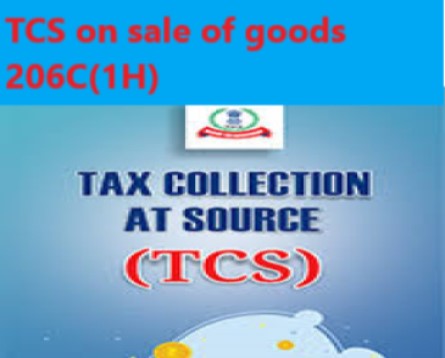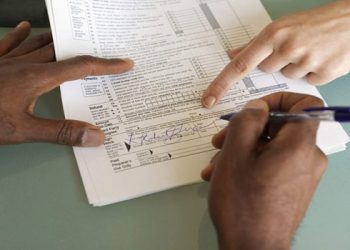CBDT has issued one circular and one press release in two days to further explain implication of section 206C(1H) which clearly explains that this is not going to be an easy section and it is going to impact a huge amount of people.
In our earlier post we had discussed only portion related to section 194-O from that circular dt. 29.09.2020 now we are going to discuss about section 206C(1H) applicable from today i.e. 01.10.2020:
Non Applicability of section:
1. This section won’t apply on transaction on securities and commodities which are traded through recognised stock exchange or cleared and settled by recognised clearing corporations including recognised stock exchanges or recognised clearing coropration located in International Financial Service centre.
2. Transactions in electricity, renewable energy certificates and energy saving certificates traded through power exchanges registered in accordance with regulation 21 of the CERC.
Calculation of threshold for the financial year 2020-21:
1. Since section 206C(1H) has been introduced from 01.10.2020, this sub section won’t apply on any receipt before 01.10.2020. However, it would apply on any sale consideration above Rs. 50 lakhs after 01.10.2020 even if it is received as advance for sale.
(Thus, in the original section where trigger point was sale above Rs. 50 lakh and collection point was receipt. Now after above explanation one only needs to see receipt’s amount and sale amount and year of sale won’t matter.)
2. The threshold of Rs. 50 lakh shall be calculated from 01.04.2020 as section talks about whole financial year but TCS shall be collected on sale receipt after 01.10.2020.
Applicability to sale of motor vehicle:
Section 206(1F) deals with TCS on sale of motor vehicle to consumer exceeding Rs. 10 lakh.
The scope of section 206C(1H) is different it not only covers consumer sales but will also cover sales to dealer and hence if the receipt from sale of car to car dealer exceeds Rs. 50 lakh TCS would be collected u/s 206C(1H).
Further if a consumer purchases 6 cars of Rs. 9 lakh then he might not be covered under 206C(1F) but he will get covered under 206C(1H), but if he gets covered under 206C(1F), he won’t be covered under 206C(1H).
Adjustment for sale return, discount or indirect taxes:
It is hereby clarified that no adjustment on account of sale return or discount or indirect taxes including GST is required to be made for collection of tax under sub-section (1H) of section 206C of the Act since the collection is made with reference to receipt of amount of sale consideration.
Fuel supplied to non resident airlines:
It is provided that the provisions of sub-section (1 H) of section 206C of the Act shall not apply on the sale consideration received for fuel supplied to non-resident airlines at airports in India.
To read the circular CLICK HERE.
Now let’s discuss what has been further clarified by CBDT in the press release Dt. 30.09.2020:
1. It has been clarified that no TCS needs to be collected on receipt before 01.10.2020 even if it crosses threshold of Rs. 50 lakh.
TCS needs to be collected on amount received after 01.10.2020. For eg: If total receipt from a person till 30.09.2020 is Rs. 60 lakh and after 01.10.2020 one received Rs. 10 lakh from the same person then TCS is to be collected only on Rs. 10 lakh received after 01.10.2020.
2. It has been further clarified by the CBDT that since businesses generally maintain running balance for debtors and to remove difficulty of checking the bill against which amount has been received, it has been clarified that TCS shall be collected on each receipt after 01.10.2020 above the threshold of Rs. 50 lakh.
Thus, this implies that TCS needs to be collected on sale made before 1 or 2 years and received after 01.10.2020 above the threshold of Rs. 50 lakh.
3. Further in the above press release the CBDT has even tried to justify collection of TCS by assuming profit of 8% for a business and tax on same and ignoring that many businesses are running in loss and justifying that against tax on above income this TCS would be a small amount.
Do remember that one needs to collect TCS only if his turnover in FY 2019-20 exceeds Rs. 10 crore and not otherwise.
Also if the business is new no need to collect TCS.
You can read the press release here: https://twitter.com/IncomeTaxIndia/status/1311295273969180672
Thus, the bottom line of all this discussion can be that TCS needs to be collected on receipt basis and it has nothing to do with sale value.














Comments 1